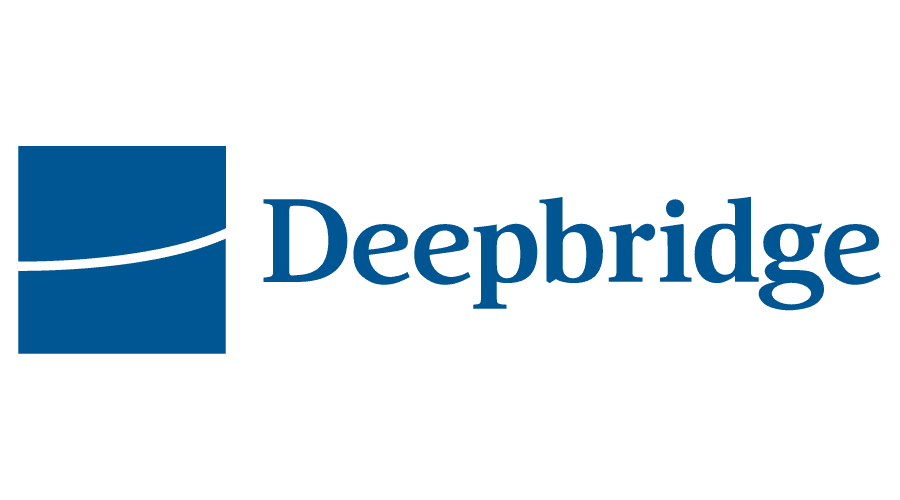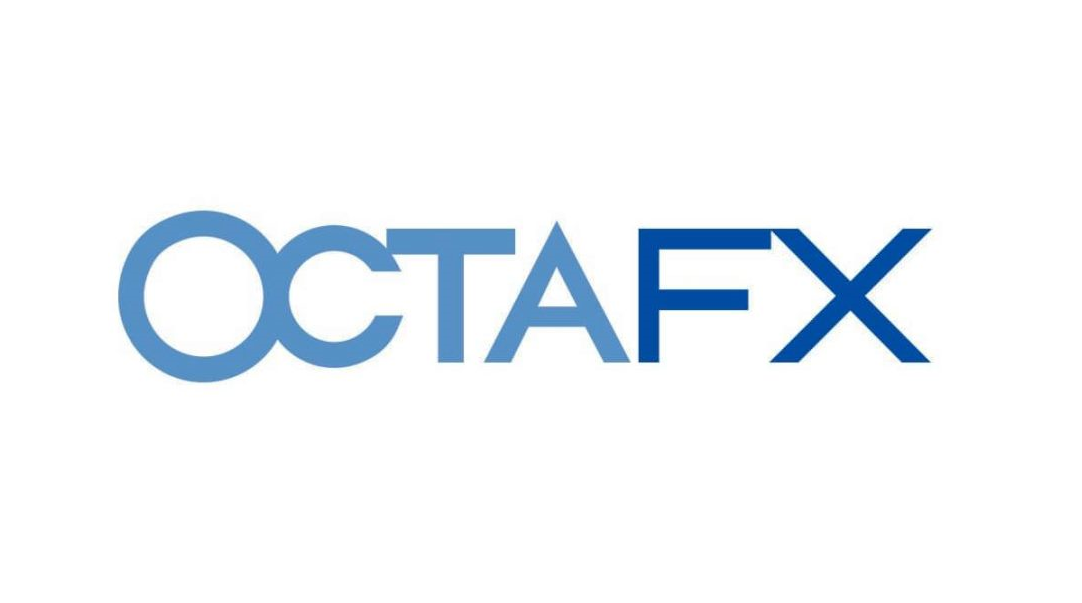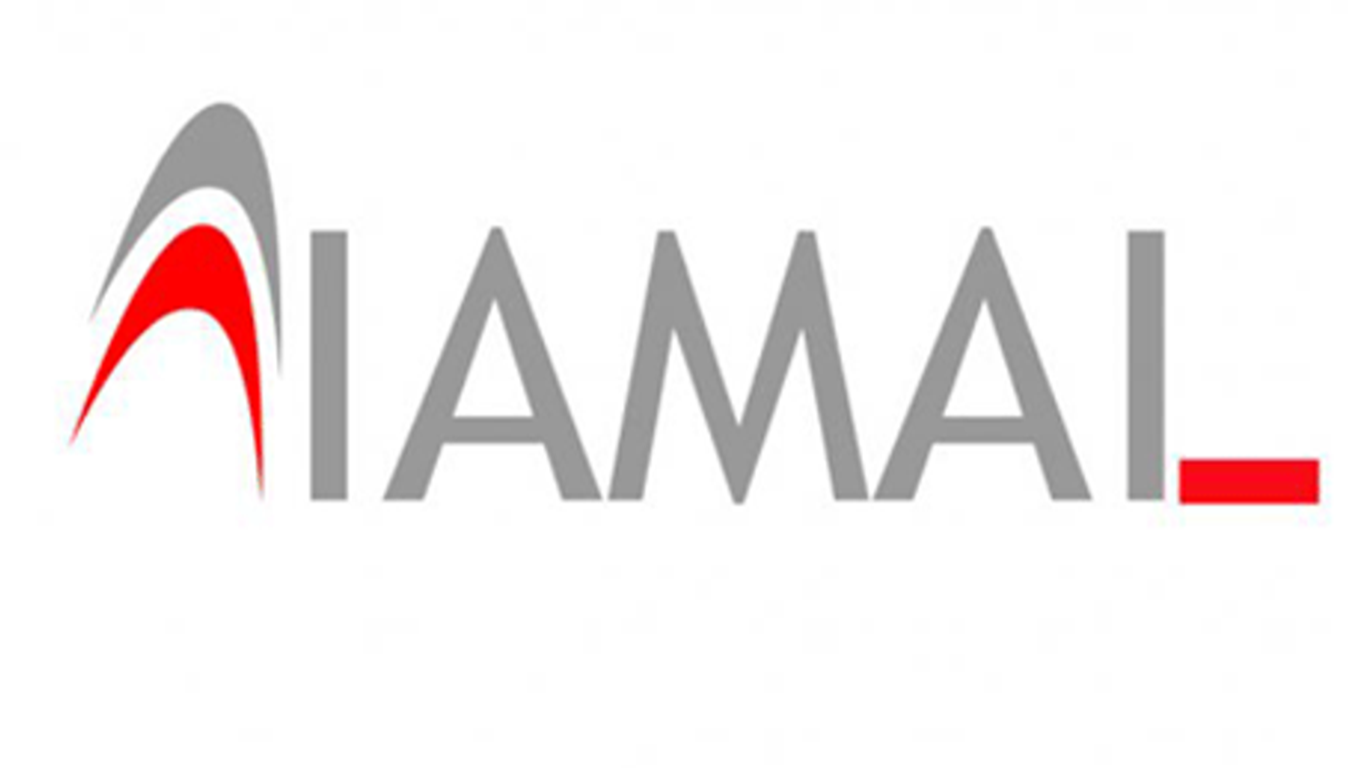Published
- 05:00 am

Enterprise Investment Scheme (EIS) investment manager Deepbridge Capital has today (11 January 2022) announced that it has now deployed over £100m of capital via the Deepbridge Technology Growth EIS fund.
The Deepbridge Technology Growth EIS was launched in 2013 as one of the first growth-focused technology EIS funds, providing private investors with access to a portfolio of early-stage investee companies across various intellectual-property-rich sectors, including energy and resource innovation, hardware technologies and IT-based developments.
With over 30% of the fund having been raised within the past two years, the fund’s capital has been provided UK-wide to 38 companies to date; with investee companies based across England, Northern Ireland, Scotland and Wales.
The Deepbridge Technology Growth EIS raises capital from private investors, with approximately 90% of funds raised via financial advisers, and typically fully deploys investors’ capital within a month of receipt of the subscription, which according to research platform MICAP is amongst the quickest in the EIS market.
During the 2020/21 tax year, Deepbridge reported a record year of EIS fund raising, with almost £30m of funds deployed across the Deepbridge Technology Growth EIS and Deepbridge Life Sciences EIS.
In April 2021, Deepbridge secured a £15m commitment from the British Business Investments’ Regional Angels Programme, which is designed to reduce regional imbalances in access to early-stage equity finance for smaller businesses across the UK, to be invested over three years, matched with capital raised via Deepbridge’s investors.
Founded in 2010, Chester-based Deepbridge specialises in providing venture capital to early-stage technology, life sciences and renewable energy companies, currently manages in excess of £210m of funds. In addition to its EIS funds, Deepbridge also manages the Deepbridge Estate Planning Service, which utilises business relief qualifying renewable energy assets to provide inheritance tax mitigation.
Ian Warwick, Managing Partner at Deepbridge Capital, commented: “We are delighted to have reached yet another deployment milestone, which reinforces our belief that our hands-on investment management style and uniquely expeditious speed of deployment is well received by financial advisers and private investors alike. We thank advisers and investors for their continued, and growing, interest in the Deepbridge Technology Growth EIS as one of the UK’s leading tax-efficient investment funds.
“The Deepbridge Technology Growth EIS portfolio is maturing well, which is now being demonstrated by the commercial successes of the investee companies, the significant co-funding our companies are attracting, and the investor exits achieved. We are currently working with a number of our portfolio companies on potential exit opportunities which will further validate our approach to EIS investing.
“In the last tax year, for every pound of EIS funding raised we were able to support our investee companies in attracting a further two pounds of co-funding. This is a continuing theme this tax year and evidences the quality of investee companies we are working with.
“Our monthly deployment model should provide investors and advisers with confidence that subscriptions between now and tax year end will be deployed this tax year.”
Martyn Noble, Founder and CEO at Hurricane Modular Commerce Limited added: “We have been extremely grateful for the funding provided to Hurricane by the Deepbridge Technology Growth EIS fund. This funding has been critical in enabling us to innovate, expand in new markets, create jobs and become a successful international organisation. The Deepbridge team’s assistance and input has been hugely supportive to our growth and much appreciated. The Enterprise Investment Scheme is designed to support companies such as ours achieve exactly what we are doing and Deepbridge’s approach is very much in line with the real spirit of EIS.”
Deepbridge currently consists of 55 team members across offices in Chester, London, Edinburgh, Bristol and Queensland, Australia.
Related News
- 03:00 am

● Louise Chan joins Ebury’s leadership team from HSBC where she was the Global Head of Innovation, Delivery and Capability Development
● Louise takes on an expanded Chief Operating Officer role covering Operations as well as Product, Data and Regulatory Reporting
● Following appointment of the new CTO, the global rollout of Ebury’s transaction services is accelerating
Ebury, one of the largest fintechs in Europe, is delighted to announce the appointment of Louise Chan as their Chief Operating Officer.
Louise is a global leader in the digital payments industry specialising in multi-currency capabilities, with a superb record of delivering transformation and business growth in complex environments.
She joins Ebury from HSBC where she was the Head of Innovation, Delivery and Capability Development, and also worked in Global Digital Payments roles for both retail and wholesale clients for over 4 years. Louise has previously held roles in other banks, including Barclays, in operations and payments.
Louise takes on an expanded remit as COO covering Product, Data and Regulatory Reporting as well as Operations.
The appointment of Louise Chan to the leadership team follows that of Victor Tuson Palau as Chief Technology Officer in an exciting period for Ebury as it continues to develop an increasingly wide range of tailored solutions for businesses that trade or conduct activities internationally.
Founded in London in 2009 by Spanish entrepreneurs Juan Lobato and Salvador García, the company has grown its global market presence to a network of 24 offices in 20 countries and more than 1,300 employees. The volume of transactions executed by Ebury amounts to $21 billion annually.
Ebury offers financial solutions to help SMEs and midcaps trade internationally. It specialises in international payments and collections, offers foreign exchange in over 130 currencies for both major and emerging markets, as well as cash management strategy, trade finance, and foreign exchange risk management.
Louise Chan, COO at Ebury, said: “I am excited to join Ebury’s leadership team and use my banking experience to lead the development of new products. Companies are constantly looking for ways to reduce boundaries to trade internationally and need market-leading partners to support these aims.
Ebury’s innovative tech platform, its network of strategic banking partnerships, and market-leading customer service positions it well to accelerate growth.”
Juan Lobato, Co-Founder and Co-CEO of Ebury, said: “I am delighted to welcome Louise to Ebury’s leadership team. Her wealth of experience at global banks with operational management, customer experience and product development is compelling.
As Ebury continues to expand, her expertise will be vital to our success. I am looking forward to working with Louise and executing our ambitious growth strategy.”
Related News
- 06:00 am

OctaFX Copytrading is a popular service that allows its customers to profit by copying orders from professional traders, also known as Master Traders. The service recently introduced major changes to its copying settings—users can now copy the Master Traders’ orders in equal, double, triple, or any other desired volume. |
The new year means new beginnings. Global broker OctaFX decided to jumpstart 2022 by updating some crucial settings of its copy trading service. OctaFX Copytrading is a top-rated service among the company's clients. There are two great reasons for its popularity. First, you can easily access the service through the OctaFX Copytrading App or desktop. Second, you need little Forex expertise to start making a profit. Wondering how it works? The clients, known as copiers, choose professional traders to copy orders from them. Whenever a Master Trader opens an order, the same order opens in a copier's account automatically. This way, a copier can simply trust a Master Trader's expertise and profit with minimum effort. Recently OctaFX Copytrading has been working on making the subscription process to Master Traders more transparent for the copiers. They updated the parameters a copier can set when subscribing to a professional trader. Firstly, a copier can choose to copy a Master Trader's orders in equal (×1), double (×2), triple (×3), or any other volume. Upon selecting a copying mode, a copier will see the investment required to start copying this Master Trader in this mode. Another new feature for the Copiers is the support funds. Copiers can choose to add support funds to protect their investments from unexpected market movements. This amount will only be used to support the trading strategy when the market fluctuates. The required investment for each Master Trader is calculated automatically. An algorithm calculates this optimal amount from a pro's trading history. This way, copiers can choose Master Traders based on how much they are ready to invest. It comes down to the most significant of the service's recent improvements. Traders utilise various trading strategies that involve different investment minimums for the Copiers. In the Master Rating, Copiers can filter Master Traders by the minimum amount required to invest with them. The system suggests Master Traders with strategies matching Copiers' financial opportunities. In 2021, the TradeForexSA magazine, a prominent South African guide to Forex trading, named OctaFX the Best Forex Copy Trading Platform. As it can be seen from the company's performance, this and other awards only inspired its' developers to work harder and deliver the best trading experience for their customers. We will probably hear of more improvements soon. |
Related News
- 01:00 am

- Around 1446 hours annually wasted per SME on mundane, repetitive tasks and manual errors
- 66% SMEs want easier access to capital and faster means for loan approvals and verification
RazorpayX, the leading business banking platform of the fintech giant, Razorpay, commissioned an IDC Infobrief titled ‘SME Banking is Broken: Will India’s Promising Neobanks Fix it?’. The infobrief launched today delves into understanding challenges faced in managing financial operations, slow adoption of digital solutions and its impact on MSMEs.
The IDC Infobrief, Commissioned by RazorpayX attempts to answer some pertinent questions around digital adoption by SMEs and what is stopping them from modernizing their finance function. Furthermore, the study highlights the urgent need for SMEs to digitally transform their finance function, as the offerings of traditional banking organisations do not align with their evolving needs. Reiterating why business finance is the core of any enterprise, the study has focused on 6 key functions that businesses typically spend most of their time on - this includes Banking, Payroll, Vendor Management, Business Reporting, Expense Management and Access to Working Capital.
The findings of the IDC Infobrief are based on the responses garnered from quantitative surveys of 20–25 minutes in length and in-depth research.
Key insights from the IDC Infobrief highlighting existing business challenges-
● 1 in every 2 businesses agree that limited resources and lack of knowledge are the two major roadblocks to their digital transformation aspirations
● The annual average loss from legacy systems dependence is INR 67 lakh (per SME, annually) which equals 1689 hours worth of man hours per SME, per year
● Over 45% SMEs fear there is a high chance of manual errors because of the dependence on traditional processes
● Over 56% SMEs reported that they wasted time from deploying resources for repetitive tasks
● 44% SMEs complained spending significant time (an average of 1446 hours) on financial operations and repetitive tasks
Having acknowledged the above mentioned challenges, SMEs also realise they need a simple seamless business banking solution that will allow them to focus on core business activities instead of being caught in complicated processes & repetitive tasks. Here are some key requirements from SMEs -
● 66% SMEs insist on need for easier access and faster means for loan approvals and verifications
● 75% SMEs wish for reduction in time spent on data entry when it comes to payroll
● 60% SMEs want a unified view of financial transactions to check and improve visibility of overall business health and identify hiccups early on
● 55% SMEs prefer automated approval processes for better time management
Shashank Kumar, Co-founder and CTO, Razorpay said, “While the banking problems faced by small businesses are many, it's good to know that some SMEs are slowly becoming aware of how neobanks can solve their broken banking experience. This IDC Infobrief commissioned by RazorpayX, our neobanking platform, attempts to bring to light the challenges faced by SMEs, the enormous time & money lost, due to dependence on traditional banking processes.”
He added, “Due to lack of awareness, small businesses aren't able to take full advantage of the seamless, integrated banking experience that neobanks can offer in managing their business financing and banking needs. The infobrief found out that 1 in 2 businesses agreed that lack of knowledge dragged down their digital transformation aspirations, which eventually affected their business growth. We hope the insights of this report will reach out to more and more SMEs and help them understand the crucial need and valuable impact neobanks can create on their business, if they give it a chance."
Michael Yeo, Associate Research Director, IDC Asia/Pacific said, “Neobanking is at an inflection point in India and has reshaped consumer expectations of what their bank can do for them. However, visibility on what they can do for businesses is yet to be discovered. SMEs in India are in dire need for solutions that can automate their end-to-end financial operations, enabling them to take intelligent and informed decisions on their financial operations. Neobanks in India are now developing technology-first solutions specifically designed for SME needs in a dynamic and ever-changing environment that has the potential to disrupt the incumbent business banking in the long run.”
- Around 1446 hours annually wasted per SME on mundane, repetitive tasks and manual errors
- 66% SMEs want easier access to capital and faster means for loan approvals and verification
BANGALORE, 11 January 2022: RazorpayX, the leading business banking platform of the fintech giant, Razorpay, commissioned an IDC Infobrief titled ‘SME Banking is Broken: Will India’s Promising Neobanks Fix it?’. The infobrief launched today delves into understanding challenges faced in managing financial operations, slow adoption of digital solutions and its impact on MSMEs.
The IDC Infobrief, Commissioned by RazorpayX attempts to answer some pertinent questions around digital adoption by SMEs and what is stopping them from modernizing their finance function. Furthermore, the study highlights the urgent need for SMEs to digitally transform their finance function, as the offerings of traditional banking organisations do not align with their evolving needs. Reiterating why business finance is the core of any enterprise, the study has focused on 6 key functions that businesses typically spend most of their time on - this includes Banking, Payroll, Vendor Management, Business Reporting, Expense Management and Access to Working Capital.
The findings of the IDC Infobrief are based on the responses garnered from quantitative surveys of 20–25 minutes in length and in-depth research.
Key insights from the IDC Infobrief highlighting existing business challenges-
● 1 in every 2 businesses agree that limited resources and lack of knowledge are the two major roadblocks to their digital transformation aspirations
● The annual average loss from legacy systems dependence is INR 67 lakh (per SME, annually) which equals 1689 hours worth of man hours per SME, per year
● Over 45% SMEs fear there is a high chance of manual errors because of the dependence on traditional processes
● Over 56% SMEs reported that they wasted time from deploying resources for repetitive tasks
● 44% SMEs complained spending significant time (an average of 1446 hours) on financial operations and repetitive tasks
Having acknowledged the above mentioned challenges, SMEs also realise they need a simple seamless business banking solution that will allow them to focus on core business activities instead of being caught in complicated processes & repetitive tasks. Here are some key requirements from SMEs -
● 66% SMEs insist on need for easier access and faster means for loan approvals and verifications
● 75% SMEs wish for reduction in time spent on data entry when it comes to payroll
● 60% SMEs want a unified view of financial transactions to check and improve visibility of overall business health and identify hiccups early on
● 55% SMEs prefer automated approval processes for better time management
Shashank Kumar, Co-founder and CTO, Razorpay said, “While the banking problems faced by small businesses are many, it's good to know that some SMEs are slowly becoming aware of how neobanks can solve their broken banking experience. This IDC Infobrief commissioned by RazorpayX, our neobanking platform, attempts to bring to light the challenges faced by SMEs, the enormous time & money lost, due to dependence on traditional banking processes.”
He added, “Due to lack of awareness, small businesses aren't able to take full advantage of the seamless, integrated banking experience that neobanks can offer in managing their business financing and banking needs. The infobrief found out that 1 in 2 businesses agreed that lack of knowledge dragged down their digital transformation aspirations, which eventually affected their business growth. We hope the insights of this report will reach out to more and more SMEs and help them understand the crucial need and valuable impact neobanks can create on their business, if they give it a chance."
Michael Yeo, Associate Research Director, IDC Asia/Pacific said, “Neobanking is at an inflection point in India and has reshaped consumer expectations of what their bank can do for them. However, visibility on what they can do for businesses is yet to be discovered. SMEs in India are in dire need for solutions that can automate their end-to-end financial operations, enabling them to take intelligent and informed decisions on their financial operations. Neobanks in India are now developing technology-first solutions specifically designed for SME needs in a dynamic and ever-changing environment that has the potential to disrupt the incumbent business banking in the long run.”
Related News
- 08:00 am

ION, a global provider of trading, clearing, analytics, treasury, and risk management solutions for capital markets, commodities, and treasury management, today announces that one of its group companies, TradAir, has partnered with BlockQuake, a global regulatory-driven cryptocurrency and digital asset exchange, to improve seamless liquidity integration.
As a leading provider of liquidity integration technology with roots in traditional finance, TradAir brings sector expertise to the cryptocurrency space. Through this partnership, BlockQuake will further its vision for merging cryptocurrency and blockchain with traditional financial services. This alliance will allow markets to operate in parallel and communicate with one another, improving efficiencies so traders can benefit from a wider selection of assets.
The partnership will give TradAir and BlockQuake’s top global regulated liquidity providers an improved, seamless, overall liquidity integration. Customers will be offered deeper liquidity and better pricing thanks to the alignment of market makers and liquidity providers in the digital asset space. This depth of liquidity will allow trades of all sizes to be executed.
“BlockQuake is on the path to become a one-stop-shop with multiple fiat gateways into and out of various cryptocurrencies and stablecoins,” said Antonio Brasse, CEO and Co-Founder of BlockQuake. “Through this partnership, we will tap into a wider customer base and not only be able to service retail clients globally but also institutions, family offices, and other entities interested in transacting high volumes. I look forward to this alliance as it will enhance overall liquidity integration, creating a better user experience and ultimately, drive greater adoption into the industry.”
Brian Liedberg, Chief Business Officer at TradAir, added: “We’re delighted to be partnering with BlockQuake, extending our solutions to benefit ION’s customers. Through this partnership, BlockQuake will be able to provide deeper liquidity and better pricing to its customers while TradAir will benefit from interfacing with a new powerful exchange geared to the trading and investing community.”
Related News
- 01:00 am

Dr Saurabh Garg, CEO, UIDAI, today said that over five crore Aadhaar authentication is taking place per day and over 40 crore last-mile banking transactions are being done every month through Aadhaar-enabled Payment System (AePS).
Speaking at the 16th edition of India Digital Summit 2022, organised by IAMAI, he said that the numbers are beyond five crores when we take into account offline authentication, he said, “ We wanted anytime, anywhere authentication capabilities…For people who don’t want to use online authentication facility, we have brought in the offline verification system and given it a legal basis. The offline verification is free for anyone to use. Aadhaar is a public infrastructure and the goal is how we can make it accessible to all at nominal rates or free. Currently, more than 700 welfare schemes are using Aadhaar infrastructure.”
“On the payments side, we have the Aadhaar-enabled Payment System for the last mile banking systems where the number is expanding rapidly. AePS has served the country well during the Covid period. Over 40 crore last-mile banking transactions are being done every month on the AePS system through 50 lakhs micro-ATMs,” he added.
He reiterated that for individual residents Aadhaar authentication is free and will always remain free. Recently, UIDAI had slashed the price for authentication to Rs 3 from Rs 20 per instance to enable entities leverage its infrastructure for providing ease of living to people through various services and benefits.
Talking about Aadhaar 2.0, he mentioned that it will ensure faster automated biometric matching solutions, with a primary focus on the security of the ecosystem. He said that the authority is exploring possibilities for the usage of blockchain, quantum computing.
“We are looking at what blockchain has to offer, whether blockchain can be utilised in any manner for making decentralized-level solutions, it’s on the horizon. Cost-effective but secure Aadhaar data wall solutions, confidential computing, as a technology how we can use in authentication, are some of the possibilities we are exploring. In quantum computing, we need to look at whether there are quantum resilient security solutions.”
We have a robust legal framework around Aadhaar, the Data Protection Act will further strengthen the framework and so, there’s a lot of interest. Privacy concerns, data security is of paramount significance, he added.
Related News
- 08:00 am

- Household consumption will increase by 46% to INR 191 trillion over the next four years; GenZ and Millennials to drive consumption
- Troubled sectors like Telecom, Capital Goods, Pharma, Banks, Asset Management, Real Estate, Cement, Discretionary, Building Materials among others are out of woods
- US FED Taper Tantrums won’t spoil the party; market cycles hints at a mega rally
Mumbai, January 11, 2021: India’s earnings growth over the next three years set to exceed the last decade average substantially, according to the ‘Sense and Sentiment Report: Envisioning 2022 and Beyond’ by YES SECURITIES, a wholly owned subsidiary of YES BANK.
YES SECURITIES envisages Nifty to hit 21,000 by 2022 and 32,000 in 2025. With abundant liquidity to keep equities in the reckoning and growing institutional participation in the Indian markets, India is expected to continue gaining share in the emerging markets basket.
Household consumption will increase in the next four years to 46% with household savings at 19% of GDP increasing quantum of disposable income to be spent on consumption. India’s demographic dividend will bolster this consumption with India’s young population highest among top 10 economies in the world. Gig economy will see a huge uptick with over 80 million jobs expected to be added in this decade and the contribution to GDP rising to as high as 10%.
Interestingly, consumption will not be dented by inflation. YES SECURITIES research sees tell-tale signs of consumption revival on both ends of the spectrum - higher agricultural production to deal with food price pressure and increasing average monthly spend per credit cards in India.
Earnings season will boost the growth of the economy with most troubled sectors out of the woods. The report entails reasons for trouble and the new reality of sectors like Telecom, Capital Goods, Pharma, Banks, Asset Management, Real Estate, Cement, Discretionary, Building Materials among others.
While global markets impact the Indian outlook, YES SECURITIES team predicts that US Taper Tantrums will not spoil the party. Rise in the cost of capital will be extremely gradual with FED normalizing ultra-cheap monetary policy. Indian trends are expected to follow the global benchmark.
YES SECURITIES has also shared the Top Stock Picks for 2022 in the report:
Apollo Pipe (TP 1070, Upside: 100%) | Gland Pharma (TP 4500, Upside: 17%) | Polycab (TP 2723, Upside: 11%) | SunTeck (TP 619, Upside: 24%) |
CCL (TP 500, Upside: 18%) | ICICI Pru (TP 836, Upside: 47%) | Presitge (TP 621, Upside: 32%) | Tata Motors (TP 566, Upside: 14%) |
CRISIL (TP 3750, Upside: 30%) | IGL (TP 620, Upside: 31%) | Reliance (TP 2860, Upside: 19%) | VMart (TP 4516, Upside: 22%) |
Dalmia (TP 1890, Upside: 41%) | IndiaMart (TP 9218, Upside: 40%) | SBICards (TP 1400, Upside: 51%) | SBIN (TP 660, Upside: 40%) |
Related News
- 06:00 am

Susannah Streeter, senior investment and markets analyst.
‘’Those niggling worries about the impact of a rise in interest rates on the value of future earnings are threatening to fast turn into a painful reckoning for many tech investors. The punchbowl of cheap and easy money being withdrawn from the party a lot sooner due to soaring inflation is inducing an early hangover for a basket of pandemic winners. It’s not just high growth stocks coming under the cosh, crypto currencies have been on another rollercoaster ride today as investors take fright from riskier assets. Bitcoin dipped below $40,000 dollars before bouncing back, as New Year resolutions of diversification came into play, with some investors offloading the crypto asset for more defensive positions. Crypto assets are highly sensitive to the fortunes of the stock market and have been propelled higher in this era of ultra cheap money, so it’s no surprise they have been hit with a severe case of the jitters as policy makers ponder their next move.
The Nasdaq composite index slipped by as much as 4% in early trade, before stemming some losses and is down by around 10% from its November high. Apple retreated further away from the nascent 3 trillion dollar club, falling 2%. Chip maker Nvidia and Mastercard registered falls of more than 5% before recovering slightly. Amazon joined the downward trajectory, slipping by 3.6% in early trade. On the FTSE 100, Scottish Mortgage Investment Trust, which holds a raft of tech darlings like Tesla, Nio and Amazon was among the biggest fallers amid concerns the tech juggernaut is slowing. With other companies in the big data and payments space slipping back, information analytics firm Experian fell lower, ending the day down by more than 5% .
News that Take Two Interactive is set to pay $12.7 billion to acquire mobile gaming company Zynga sent its share price plunging 14%. Far from being a steal, there is clearly concern among some investors that the Grand Theft Auto maker could be paying over the odds to drive through the deal. There may still be a lot to play for in a gaming world gearing up for metaverse opportunities, but it’s still an eye watering price tag.
Even Estee Lauder was not immune to the sell-off, dropping by more than 5% amid expectations that an income squeeze could see a fall in demand for discretionary items like expensive perfume. But the lipstick effect could still come into play with a chance that consumers may still splash the cash but just opt for less expensive products from beauty ranges, as they tighten their fashionable belts further.’’
Related News
- 09:00 am

Leading AI-powered credit decision platform provider, Scienaptic announced today that Advantage One Credit Union has chosen its AI-based underwriting platform to complement its lending process and make advanced loan decisions.
Founded in 1952, Advantage One Credit Union started with serving employees of McLouth Steel Corporation. Over the decades, the credit union has grown, with $208 million in assets and two branches in southeast Michigan that offer a range of financial products and services. These services are spread across digital banking, personal finance, mortgage, auto loans and more. Advantage One prides itself in offering superior financial services than most big banks. The deployment of Scienaptic’s AI-powered loan decisioning platform will further its reach throughout Michigan, providing members with better access to credit by approving more loans, faster.
“At Advantage One, we pride ourselves in taking steps for the community, whether it is through offering superior financial products for our members or performing a range of charity work in the state,” said Nicholas Schmitter, Chief Lending Officer at Advantage One. “Scienaptic's AI-powered credit decisioning platform will allow us to go the extra mile we have always wanted to go. It will automate our loan decisions, empower us to know our members better and say ‘yes’ to their loan requirements faster. It will also give better access to credit to so many deserving members who aren’t deemed fit according to traditional credit scores.”
“We are thrilled to have the chance to change lives in the state of Michigan by offering our industry leading credit underwriting platform to Advantage One,” said Pankaj Jain, President of Scienaptic. “Our platform will allow Advantage One to not only approve more loans faster but also enhance member experience, minimize risk, and reach out to more members all at the same time!”
Related News
- 04:00 am

Fingerprint Cards AB’s (Fingerprints™) second-generation T-Shape® sensor module and software platform for biometric payment cards have achieved compliance with Mastercard’s new Fingerprint Sensor Evaluation Process. Having passed the former specifications last year, Fingerprints has proactively secured this updated approval to simplify the process for card manufacturers to launch second generation biometric payment cards.
This development will minimize the time to market, lower related costs and is an important milestone for the deployment of biometric payment cards at scale, supporting greater convenience and security for consumers making in-store purchases.
The test was performed in line with Mastercard’s stricter anti-spoofing capabilities for biometric payment cards, which were issued last year. The Fingerprint Test Assessment Summary (FTAS) for sensor vendors confirms the performance of features that enhance the security, privacy, and user experience for cardholders.
“Yet again we are pushing technology boundaries by increasing the security features of our solution. This is an important achievement for our card partners, who can save time and money when launching and scaling second generation biometric cards. And ultimately for consumers, who will be able to enjoy a convenient and secure in-store payment experience”, says Michel Roig, President Fingerprint Cards Switzerland AG – Payment & Access.
The second-generation T-Shape technology combines extensive R&D investment with key learnings from successful market pilots and commercial rollouts. It delivers increased performance and power efficiency, enabling the most cost-effective biometric payment cards to be produced and integrated using standard manufacturing processes.









